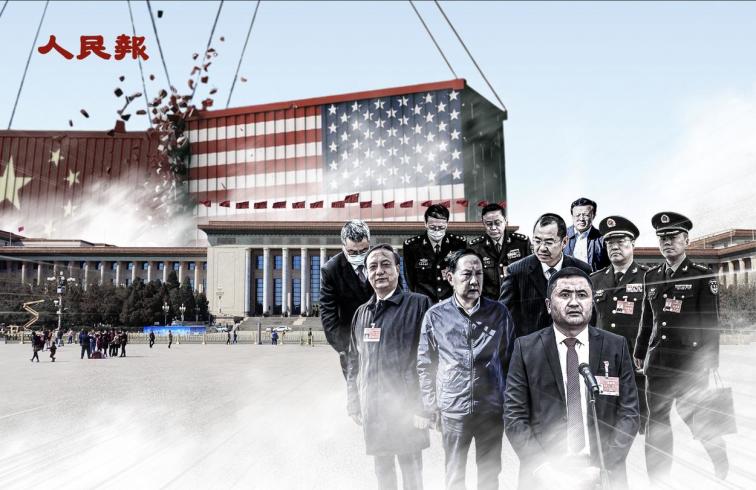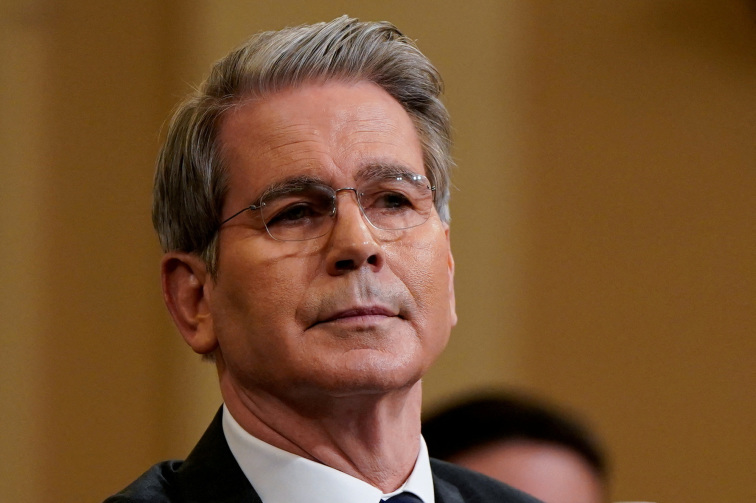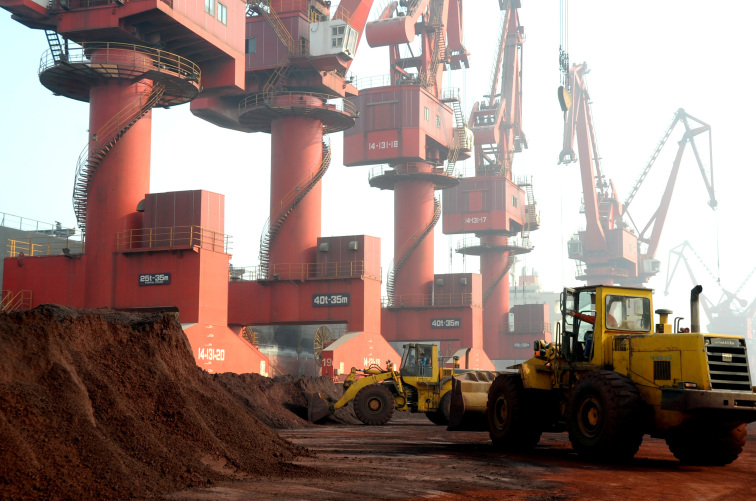Wang Huning, a member of the Chinese Communist Party (CCP) Standing Committee
[People News] On October 25, immediately after the Fourth Plenary Session concluded, the CCP held an event in Beijing titled “Commemoration of the 80th Anniversary of Taiwan’s Retrocession.” The meeting featured a keynote address by Wang Huning, chairman of the Chinese People’s Political Consultative Conference (CPPCC), who delivered the latest Party-line discourse on Taiwan. Compared to the 70th anniversary event ten years ago, this year’s ceremony contained several notable—and rather peculiar—features.
1. Reinforcing the “Reunification” Narrative and Historical Sovereignty Claim
At this year’s conference, Wang Huning emphasized adherence to the policy of “peaceful reunification and One Country, Two Systems,” and proposed that, following reunification, Taiwan would enjoy “seven major improvements.”
At the 70th Anniversary of Taiwan’s Retrocession on October 23, 2015, then-CPPCC Chairman Yu Zhengsheng attended and delivered a speech titled “Jointly Remember History and Realize the Great Dream.”
That year, near the end of Ma Ying-jeou’s presidency, the cross-strait atmosphere centered on “shared national glory through anti-Japanese history.”
Today, however, the CCP has almost entirely seized control of historical interpretation, shifting the narrative toward “national rejuvenation and the process of unification.”
Taiwanese media observed that this conference demonstrated the mainland’s dominance over the narrative, completely dismissing the American notion of “Taiwan’s undetermined status.”
In essence, the 2015 commemoration focused on “reviewing historical facts,” while the 2025 event explicitly turned “history into a political mission”—recasting the “victory over Japan and retrocession of Taiwan” as an unfinished chapter of “completing reunification.”
Comparing attendees also reveals political shifts. In 2015, then–Foreign Affairs Director Yang Jiechi did not attend; this time, Wang Yi, holding the same position, did.
Under Xi Jinping, the Office of Foreign Affairs Director’s status has risen sharply, becoming the Party’s chief foreign-affairs architect, wielding greater power than the State Council’s foreign minister.
Does Wang Yi’s presence mean that Taiwan is now being treated as a diplomatic issue—or perhaps is it to quell retirement rumors about him?
Another unusual feature: on October 24, during the 18th session of the 14th National People’s Congress Standing Committee, lawmakers passed a resolution establishing “Taiwan Retrocession Day” (October 25) as a legal national commemorative day.
Historically, on October 25, 1945, after World War II, Japan—pursuant to the Cairo Declaration, Potsdam Proclamation, and its instrument of surrender—transferred the administrative authority over Taiwan and the Penghu Islands to the Republic of China (ROC).
The Kuomintang (KMT), the governing party of the 1945 ROC, thus shares direct historical continuity with that government.
That makes this lavish commemoration rather ironic: the CCP, which drove Chiang Kai-shek and the KMT to Taiwan in 1949, now celebrates together with KMT figures the Japanese handover of Taiwan to the ROC—a remarkable display of political thick skin.
2. Wang Huning Calls Out to Chiu Yi for an Exchange
After the meeting, CCP leaders Wang Huning, Wang Yi, and Zhang Youxia exited the platform from the left side.
Before leaving, Wang Huning waved toward Chiu Yi, a former Taiwanese legislator seated in the audience.
After confirming the gesture was directed at him, Chiu approached the stage to exchange greetings and handshake with Wang Huning and others for about three minutes.
During this interaction, Wang Yi, Li Ganjie, Zhang Youxia, and Liu Guozhong also joined in briefly.
Photographs showed Wang Huning and Wang Yi initially chatting with Chiu Yi; once Zhang Youxia arrived, he became the center of attention.
Other Taiwanese attendees included: Chi Chia-lin, honorary chairman of the Unification Alliance Party; Chi Hsin, publisher of Taiwan Watch magazine; Wu Jung-yuan, chairman of the Labor Party; Hsu Cheng-wen, former KMT Central Committee member; Yuan Chi-cheng, professor at National Taiwan University; Li Cheng-hung, president of the National Association of Taiwanese Enterprises in China.
Observers noted that among all these guests, only Chiu Yi was singled out for the public handshake. Why?
According to public records:
Chiu Yi, born May 8, 1956, in Yanchao District, Kaohsiung, holds a PhD in Economics from National Taiwan University.
He served three consecutive terms as a member of Taiwan’s Legislative Yuan and has belonged to multiple political parties, including the KMT, New Party, and People First Party.
During the 2024 Taiwan elections, he maintained close ties with Ko Wen-je’s Taiwan People’s Party and was invited to serve as a “special advisor.”
Chiu has repeatedly declared publicly:“To unify Taiwan by force, all that’s needed is a heavy troop deployment along China’s southeast coast—pressure alone will make Taiwanese surrender.”
He is thus known as a prominent pro-unification figure.
After the ceremony, when asked by World Journal reporters what they had discussed, Chiu modestly replied:“No, no—it was them who called me up. We’re old friends; it’s been a long time. I’m leaving Beijing tomorrow.”
In an interview with China Daily, he again voiced pro-CCP sentiments:“Since the DPP refuses to commemorate Taiwan Retrocession Day or respect this historical fact, the mainland must shoulder this historic responsibility.”
3. Soldiers at the Venue
One of the most striking sights was on the right-hand section facing the main stage, where numerous young PLA soldiers were seated upright in full uniform, drawing public attention.
A United Daily News article titled “Leaked Scene? Wang Huning Waves ‘Him’ Onstage at Mainland Taiwan Retrocession Event” even included a photograph of this detail.
Given that several black-clad security agents were already present, why deploy so many young soldiers as well?
Some speculate that authorities feared disruption from the seven Taiwanese guests.
But since all invited attendees were pro-unification figures, the presence of 28 soldiers seemed excessive for such a concern.
Another interpretation connects this to recent revelations by Cai Xia, former president of the CCP Central Party School.
Cai alleged that generals He Weidong and Miao Hua had secretly helped Xi Jinping form a personal military force to arrest Zhang Youxia, suggesting severe discord between Xi and Zhang.
If Cai’s account is accurate, then since Xi’s rumored stroke after the Third Plenum, the purge of 31 military officers might actually have been a counterattack led by Zhang Youxia.
Some commentators believe Xi and Zhang have since reached a compromise—Zhang controlling the military, Xi managing Party and government affairs.
If so, a plausible reading is that the black-clad agents were protecting Party and state leaders, while the uniformed soldiers were protecting Zhang Youxia.
(First published by People News)
△











News magazine bootstrap themes!
I like this themes, fast loading and look profesional
Thank you Carlos!
You're welcome!
Please support me with give positive rating!
Yes Sure!